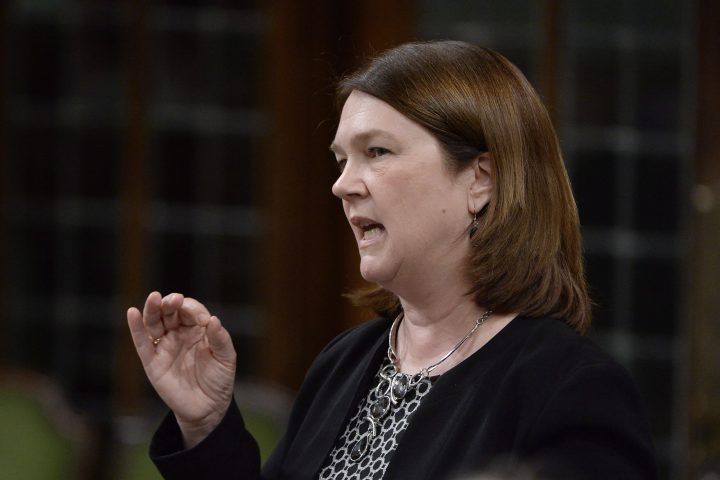OTTAWA — Indigenous Services Minister Jane Philpott says provinces and territories have not been at the table to the extent they need to be — up until now — to address issues with First Nations child welfare.

It is “unfortunate” they were also not part of the landmark human rights ruling handed down in 2016 from the Canadian Human Rights Tribunal — a source of ongoing friction for the federal government, Philpott said in an interview.
Some child welfare agencies that need to be part of the solution are led by First Nations while others are private and overseen by the provinces, she added.
WATCH: Trudeau explains why he devoted UN speech to First Nations issues

“Clearly, Indigenous leaders are a major part of the conversation … child welfare agencies need to be part of the conversation,” Philpott said.
“Some of those are First Nations-led, some of them are private, some of them are connected to provinces, but the federal government is obviously very engaged on the issue, but we will not be able to address the substantial changes that need to be made if provinces and territories are not part of the conversation.”
Ottawa-based lawyer Anne Levesque, who represents the First Nations Child and Family Caring Society in the case before the tribunal, said the federal government has independent obligations under the Canadian Human Rights Act.
The tribunal has clearly insisted the federal government take additional measures right away, she added, noting consultations with the provinces and territories ought not be used as a stalling tactic.
READ MORE: Canadian educational workbook recalled after critics say it ‘whitewashes’ Indigenous history
“Governments are sophisticated respondents,” she said Tuesday.
“They should have the capacity to work with their stakeholders and partners in provinces and territories to develop comprehensive strategies to … prevent discrimination. On an immediate level, the (federal) government must comply.”
The society’s executive director, First Nations advocate Cindy Blackstock, also said the tribunal has not indicated the provinces and territories have a role to play in making sure Canada complies with the 2016 decision directed at Ottawa.
“In various regions, First Nations already have pre-existing relationship with the provinces,” she said.
“There’s no doubt that in some areas that needs to be strengthened and where the federal government can encourage and leverage the province to do that, to work with effectively with First Nations, they should do it. But I don’t see how that falls into compliance with the (federal) orders.”
WATCH: Study finds obstacles exist to teaching First Nations’ history in Canadian classrooms

Northern Ontario MP Charlie Angus, who is set to be named the NDP’s critic for Indigenous children on Wednesday, said it was not the provinces who were found guilty of systemic racial discrimination by the tribunal – it was the federal government.
“If the federal government ends that systemic discrimination and the federal government is willing to put the money that they owe to pay their share, then we can talk about what more the provinces need to,” he said.
Trying to drag provinces and territories into the discussion is another stall tactic in a long and dismal list, he added.
“This government still doesn’t get it through their head that they have a legal and moral responsibility to these children and they are blaming everyone else.”



Comments